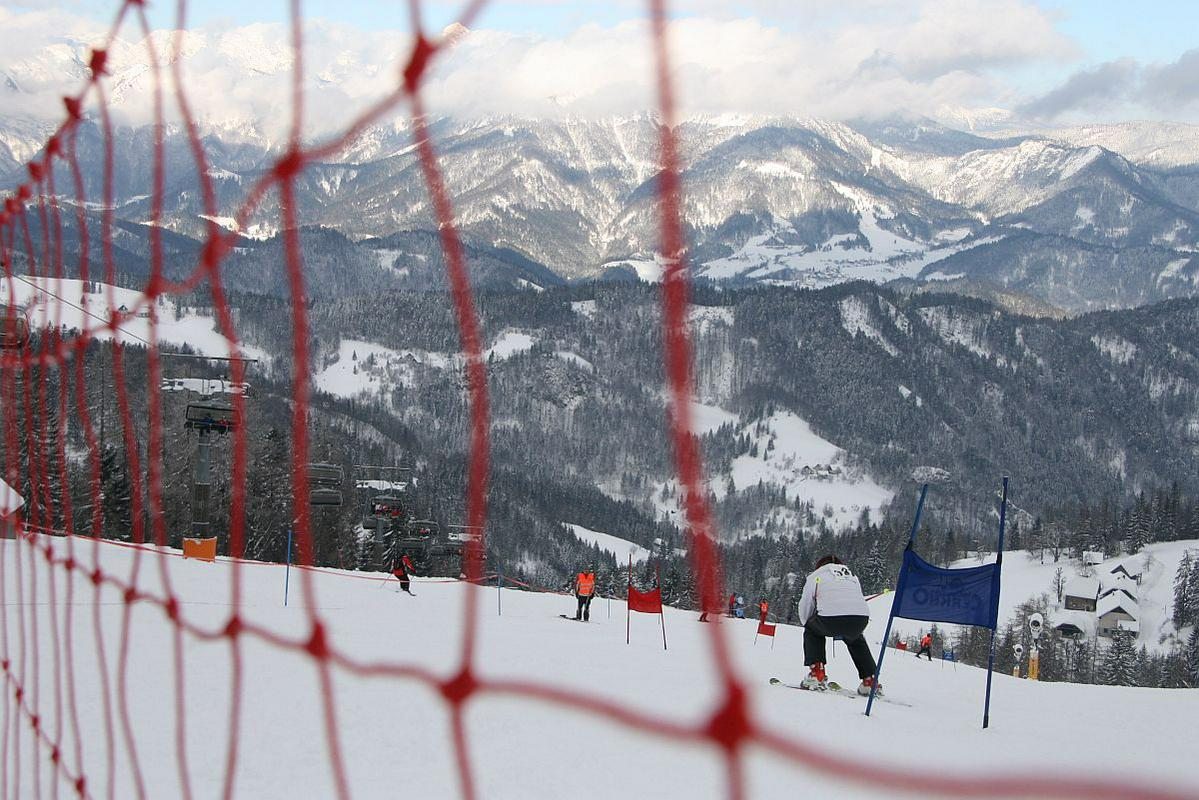
When the Axis powers invaded Yugoslavia at the outbreak of World War II and divided Slovenia between them, resistance fighters scrambled into the woods and began a protracted guerilla fight against the occupying forces. Despite operating in difficult conditions, members of the Partisan resistance published books and newspapers, operated a radio station, and staged plays. In 1945, the troops even organized a miniature version of the Winter Olympics.
The event, known as the Partisan Ski Games, took place for two days in the small town of Cerkno. The town itself had been liberated by the Partisans, but it was still surrounded by thousands of German troops. Still, the volatile conditions didn’t prevent soldiers from around occupied Slovenia from taking part in the games. The area was difficult to access, and the would-be competitors had to evade frequent German patrols, but they were determined to make their way to Cerkno.
In the end, hundreds of troops, both Slovenian Partisans and representatives of other Allied forces, participated in the games. The events, which took place in front of large crowds, ranged from alpine skiing and ski jumping to cross-country races. Some competitions pitted entire units against each other, while others were individual events. The soldiers remained in their uniforms; some carried arms while competing in case the Germans attacked. At night, most slept in private homes throughout Cerkno and beyond because no other accommodation was available.
A number of competitors from the games went on to stellar winter sports careers after the war. Janez Štefe, who won the giant slalom, later competed at the Oslo Olympics, where he fished an impressive 13th in the downhill race. Rudi Finžgar, who had come in first in ski jumping and second in the giant slalom, eventually set several Slovenian ski jumping records in Oberstdorf, Austria, became the first Slovenian to jump more than 100 meters, and founded a ski manufacturing company after the war. Known as Elan, it is now one of the world’s leading makers of skis, yachts, and other sports equipment.
The memory of the Partisan Ski Games continued long after 1945. In 1975, the authorities decided to revive the games in memory of the only such event in war-ravaged Europe. Today, the Ski Games are an annual tradition, attended not just by current members of the Slovenian Armed Forces, but also by army veterans and troops from other European countries who come to Cerkno to remember the bravery of wartime athletes during one of Europe’s darkest hours.


































































